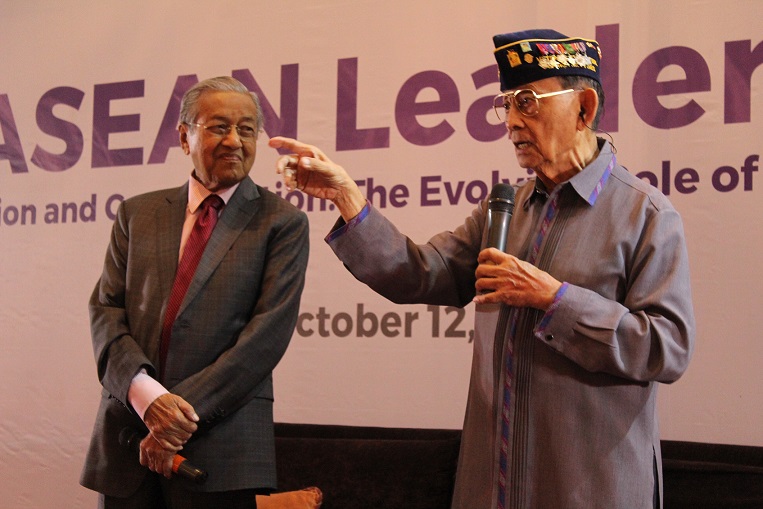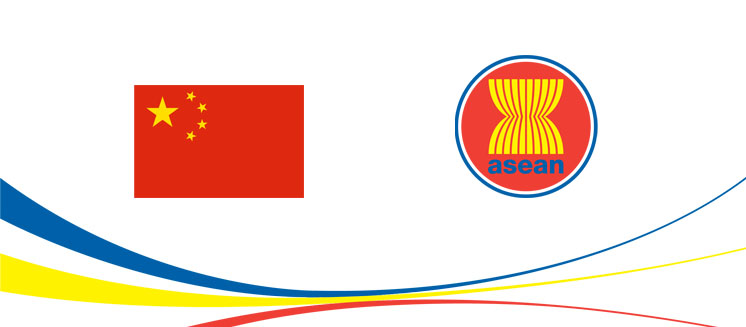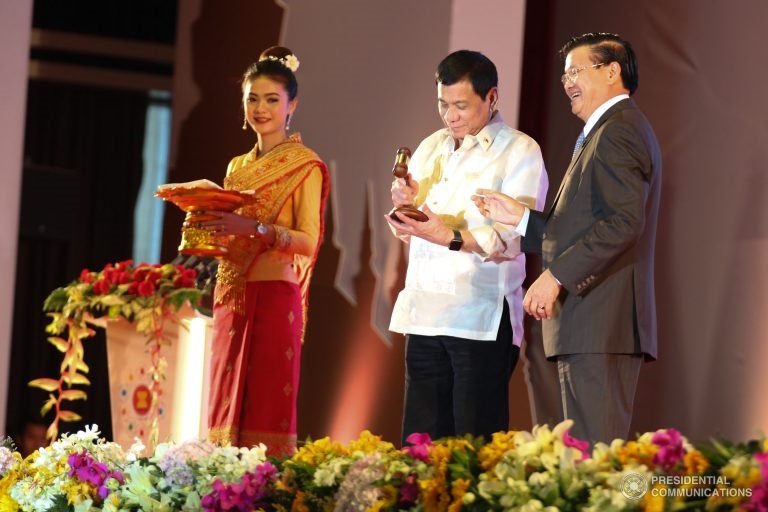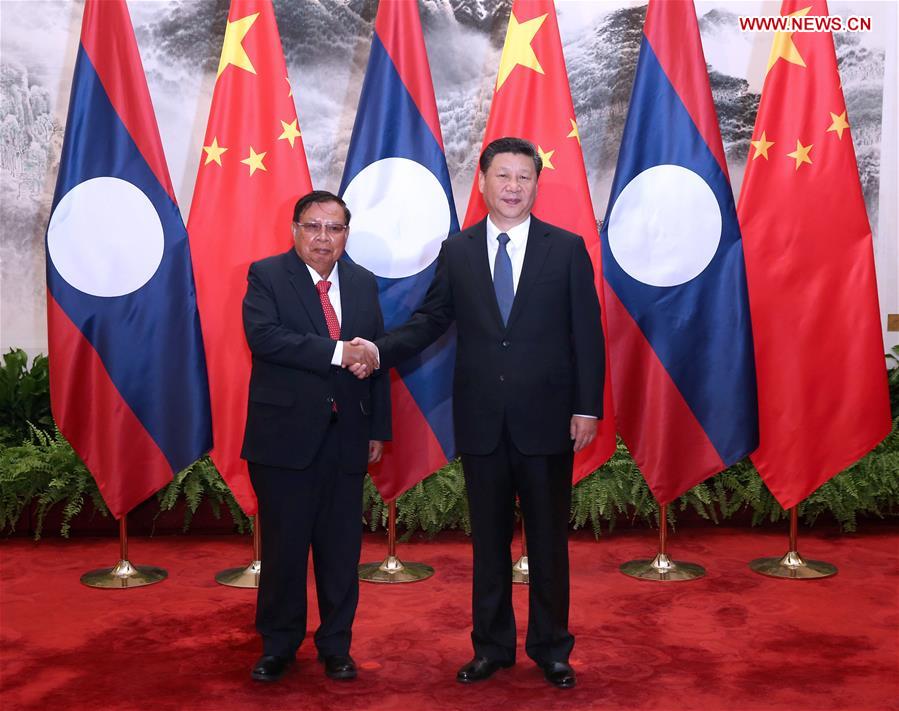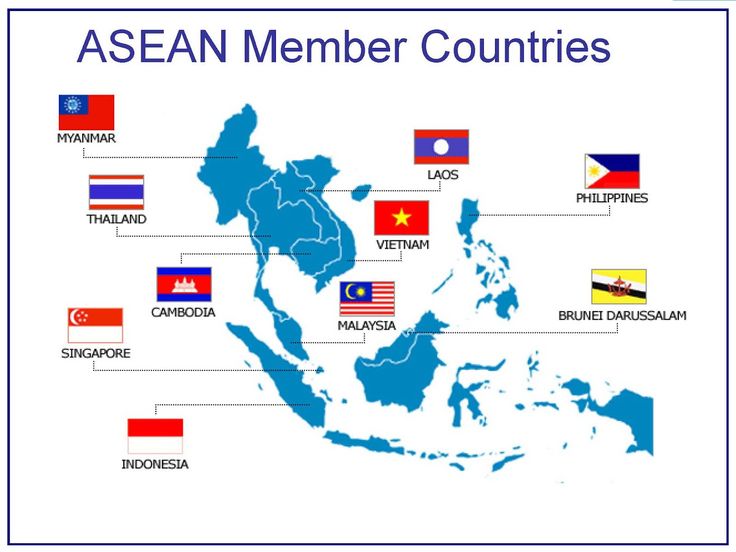Two senior Southeast Asian leaders said young people should be given more voice in the Association of Southeast Asian Nations (ASEAN) which is celebrating its 50th anniversary with the Philippines as host.
Enlivened with anecdotes that showed the friendship they have forged in the years they led their respective countries in ASEAN meetings, former President Fidel V. Ramos, 89, and former Malaysian Prime Minister Mahathir bin Mohamad, 92, said the 10-member organization must devise new ways to keep up with the changing times.
“Older people should give way to the younger people,” Mahathir said, to which Ramos readily agreed, on Oct. 12 at the ASEAN leaders’ forum in Makati City. “The old solutions are not working anymore.”
To keep up with the young, Ramos, 89, who served president from 1992 to 1998, urged, “Join the young people in the coffee tables, in the bars, and also in the playground.” He said that’s what he is doing these days with his grandchildren.
Ramos’ father, the late Foreign Secretary Narciso Ramos was one of ASEAN’s founding fathers.
Both Mahathir and Ramos worked together in ASEAN during their terms, dealing with the region’s three pillars: political security, economic and socio-cultural community, the forum’s central theme.
“The way of doing things today must be different because of the advances of technology, communication and the ability to move from one place to another,” Mahathir said.
In a lighthearted moment, Mahathir at the start of the forum said simple things like navigating a gadget prove the youth are capable.
“I cannot understand the use of computers but my little children, my grandchildren, they have been born with it,” he said, to the audience’s lively response.
“Wisdom is now with the younger people, not the older people. That should be something that the old people should accept,” added Mahathir, who led Malaysia from 1981 to 2003.
One in four citizens in the 630 million-strong ASEAN are 15 to 29 years old, according to an article in the ASEAN website.
The report added that 68 percent of the population will be at working age by 2025, ensuring a “much needed labor supply to sustain and propel economic development.”
However, citing its youth development index report, ASEAN in a July story found the youth more than six times likely to be unemployed than their adult counterparts in the labor force.
ASEAN has made several efforts to include the youth and raise its voice.
In September, the ASEAN Foundation held an event, which aims to simulate real-life meetings. Some 77 university students across Southeast Asia took the role of officials and heads of state. (See When young people take over ASEAN)
It exposed them to, among others, the challenges of consensus-building, a tradition that has governed the decision-making process in the 10-member ASEAN composed of Brunei, Cambodia, Laos, Indonesia, Malaysia, Myanmar, Philippines, Singapore, Thailand and Vietnam. (See FVR says ASEAN veering towards majority rule to replace consensus in decision-making)
More, an ASEAN youth conference under the theme, “Towards ASEAN Community Vision 2025, it all begins with YOUth,” will be held alongside the ASEAN Summit in November.
